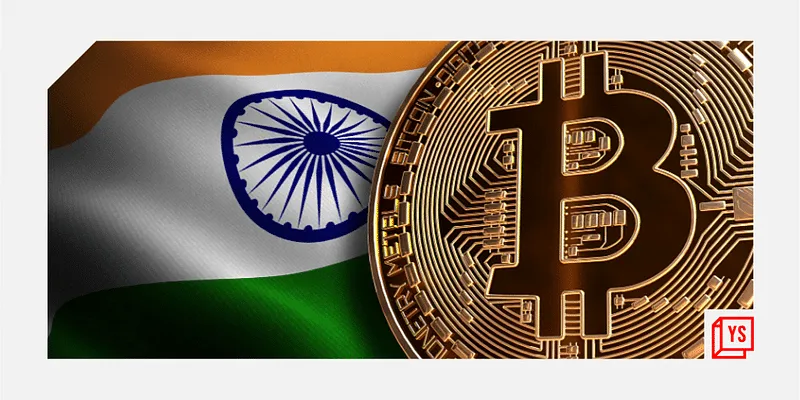Today, India stands on the verge of a historically momentous time, where we can witness the emergence of innovative technologies that encompass the Internet of Things (IoT), Augmented and Virtual Reality (AR/ VR), among others. These industries are evolving at a tremendous rate, fostering innovative business systems, payments, and efficiency models.
Among these revolutionary technologies stands blockchain technology at the forefront. Blockchain is often muddled with cryptocurrency and is usually conversely used, but a substantial difference between these two needs to be comprehended. It’s a fact that cryptocurrency is one of the initial applications of blockchain technology.
Blockchain has multiple use cases that work on a smart contract whose successful implementation comes at a cost. This technology has radically changed many industries and transposed their way of functioning. It’s clear that blockchain is here to stay.
Blockchain technology has a very impactful effect on the fintech industry when it comes to transparency, credibility, security, accessibility, effective cost, etc. Due to these advantageous factors, many considerable organisations are shifting from Centralized Finance (CeFi) to Decentralized Finance (DeFi).
Let’s take a closer look at what DeFi can do for the fintech industry of India.
Why is DeFi considered potent to revolutionise the FinTech industry?
To get a notion of what DeFi can do, let’s first draw a quick comparison between Traditional Finance (TradeFi) and DeFi. To secure a loan from a bank, contemplate all the complex procedures you’ve to go through. You need to undergo a slew of banking protocols, provide a significant amount of personal information, and then wait for a loan at a fair rate of interest. This entire process definitely involves a good amount of paperwork that is also pretty much time-intensive.
Now, think of securing a loan in a few minutes that includes no paperwork or disclosing any of your personal information; you only require Cryptos and blockchain technology.
You can use your crypto as collateral to borrow funds from any location worldwide in a matter of a few clicks. With DeFi, you can secure your loan in a few minutes. This is what DeFi is capable of doing!
Think of how this could revolutionise our underbanked population. DeFi could provide credit to SMEs which have been traditionally under-serviced by the banking system. According to a study by Chainanalysis in 2021, it was found out that India stands in the sixth position when it comes to DeFi adoption at the global level. It is definitely one of the most thriving and innovative sectors of the Web3 space.
Let’s turn to blockchain and check how it is restructuring various sectors in India. The following section will reveal how multiple industries are ready to adopt blockchain with open arms.
Blockchain and its impact on multiple sectors of India
- Government sector: The Securities and Exchange Board of India (SEBI) has mandated that all financial institutions should incorporate blockchain technology to safeguard records. The system of maintaining records will become more transparent as a corollary, as will the process of surveilling the issuance of securities and clauses of non-convertible securities.
- The Tea Board of India intends to leverage blockchain technology to boost its supply chain. The organization has been experiencing a drop in the quality of tea brewed due to malpractices. With the integration of blockchain technology, maintaining records at each stage of the supply chain will be simplified. This would enhance accountability and facilitate the administrators’ ability to identify and address the problem areas.
- During the COVID-19 pandemic, Maharashtra Government’s Disaster Management Department used the Polygon blockchain to issue COVID-19 test certificates.
- Telecom sector: All telecom firms have been ordered by the Telecom Regulatory Authority of India (TRAI) to commence the use of blockchain technology. The introduction of this technology in the telecom industry will solve the issue of spam calls. Further leveraging blockchain technology will help the authorities to identify unlicensed telemarketing firms. Taking AI on the bandwagon along with blockchain technology will help address the telecom industry’s loopholes, believes the industry experts.
Blockchain, monetisation, and creator economy of India
The smartphone’s affordability and smooth access to the internet, when clubbed with social media, encourage the creators and place them in a better position to generate revenue through content creation. But is the revenue enough to lead an economically stable life?
YouTube’s growing creator ecosystem is generating considerable economic value for the Indian market and contributed Rs 6,800 crore to the country’s GDP while supporting 6.83 lakh full-time equivalent jobs in 2020. YouTube only shares 55% of the revenue with the creators. Monetization takes time, especially with so many other platforms in India.
This is where blockchain and NFTs play their roles in empowering the creator economy. Anything digital can be an NFT: Benarsi silk sari designs, Warli drawings, or even Rajasthani folksongs. A lot of the current euphoria is around using tech to sell digital art. NFTs are essential because they offer superior economics to developers and creators compared to existing platforms.
Web 3.0 provides freedom to creators to monetise their content and get hold of their royalty income. No third party can alter the content or steal the data.
Final thoughts
It is evident that India is constantly moving towards becoming the key centre for blockchain and DeFi. According to industry experts and analysts, India and its neighbouring regions are on the verge of ascending to worldwide hegemony.
The possible options for blockchain evolution and the incorporation of DeFi are limitless because they have the potential to considerably strengthen the many facets of the Indian economy, including the nation’s cumulative financial infrastructure.
Looking at the substantial impact of blockchain and DeFi on Indian industrial sectors, we can say that India is moving forward to become a super force with full power.
(Disclaimer: The views and opinions expressed in this article are those of the author and do not necessarily reflect the views of YourStory.)
Read More: news.google.com









 Bitcoin
Bitcoin  Ethereum
Ethereum  Tether
Tether  XRP
XRP  Solana
Solana  Dogecoin
Dogecoin  USDC
USDC  Cardano
Cardano  Lido Staked Ether
Lido Staked Ether  TRON
TRON  Avalanche
Avalanche  Sui
Sui  Wrapped stETH
Wrapped stETH  Toncoin
Toncoin  Shiba Inu
Shiba Inu  Chainlink
Chainlink  Wrapped Bitcoin
Wrapped Bitcoin  Stellar
Stellar  Hedera
Hedera  Polkadot
Polkadot  WETH
WETH  LEO Token
LEO Token  Bitcoin Cash
Bitcoin Cash  Litecoin
Litecoin  Uniswap
Uniswap  Pepe
Pepe  Hyperliquid
Hyperliquid  Wrapped eETH
Wrapped eETH  Ethena USDe
Ethena USDe  NEAR Protocol
NEAR Protocol  USDS
USDS  Internet Computer
Internet Computer  Aptos
Aptos  Aave
Aave  Mantle
Mantle  MANTRA
MANTRA  POL (ex-MATIC)
POL (ex-MATIC)  Cronos
Cronos  Ethereum Classic
Ethereum Classic  Render
Render  Bittensor
Bittensor  Monero
Monero  Tokenize Xchange
Tokenize Xchange  Dai
Dai  Artificial Superintelligence Alliance
Artificial Superintelligence Alliance  Virtuals Protocol
Virtuals Protocol  Arbitrum
Arbitrum